Sustainable and Community Waste Management in Eco Fragile Mountain Areas, Gilgit Baltistan, Pakistan
Sustainable and Community Waste Management in Eco Fragile Mountain Areas, Gilgit Baltistan, Pakistan
Project Status: 2003 – 2014
GOALS AND OBJECTIVES
The strategic goal of the project is to preserve and protect the environmental integrity of the most popular and frequently used access route that leads to mountains and glaciers inside the Central Karakoram National Park CKNP, situated in Gilgit Baltistan. The objective is to convince local stakeholders to adopt policies and behaviours to preserve their area.
The access route leads to the Concordia area four mountain peaks above 8000 meters and myriad other summits form the hub of human activity between May and August each year. Thousands of people traverse this 90 km route for activities that include tourism, adventure, recreation and scientific research. The degradable and non-degradable waste left by visitors, the absence of tourist facilitation services and local ownership of sustainable waste management practices raised pollution level of the environment, contaminated the eco system and human life and biodiversity.
Since 2003, Mountain and Glacier Protection Organisation’s (MGPO) waste project has successfully put in place a sustainable mechanism for waste management and disposal with the active participation of the community and raised the environment awareness among all stakeholders.
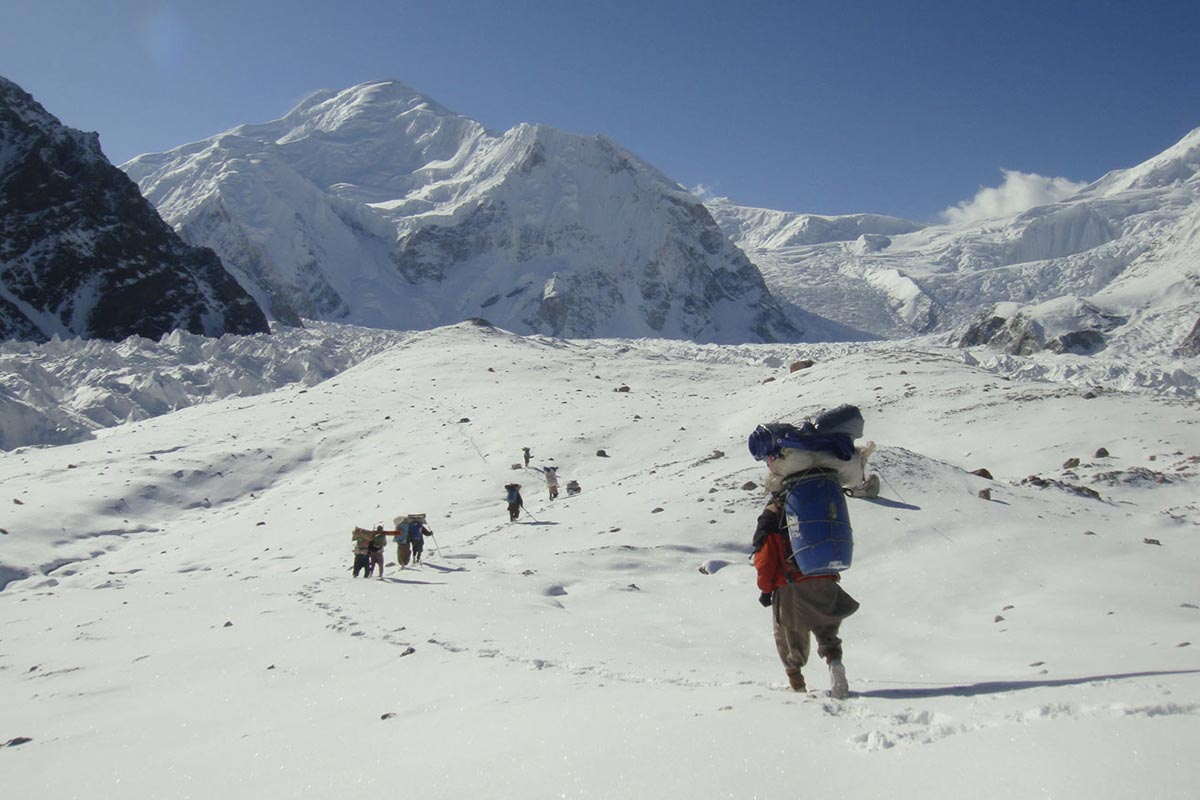
HOW DOES IT CONTRIBUTE TO MOUNTAIN PROTECTION
The project has contributed to mountain protection in three distinct ways, social, economic and environmental. The project helped the implementation of national regulation regarding tourism and built the capacity of the local stakeholders. The communities are now directly responsible for waste management and ensure that tourists observe the rules and regulations applicable for tourism in eco fragile areas. In economic terms, the project has accrued financial benefits for the custodian communities thanks to a camping fee. From the environmental perspective, there was significantly reduction of air, land and water pollution levels. The local communities now link ecology with economy. At the same time they have developed a better understanding of the interdependence between man and nature and the need for harmonization between activities to produce results that are mutually beneficial.
There are now six campsites along the access route that are run by the respective custodian communities and provide facilitation services to tourists.
COLLABORATION WITH LOCAL COMMUNITIES AND AUTHORITIES
The project was developed through a process of social mobilization which is broad based, representative, transparent and socially inclusive. A community representative committee was formed through an electoral process in which 40% female inclusion is mandatory. The committee was trained in planning, management and monitoring as well as specific skills related to campsite operations and maintenance. Consultation meetings were conducted with the community to discuss emerging issues and find socially, economically and environmentally friendly and cost effective solutions. Terms of Partnership were signed with the community to define roles and responsibilities of both parties.
MGPO worked in consultation with local administration Commissioner, representatives of the Wildlife and Forests Department, Central Karakoram Park Directorate and collaborated with the local communities.
GOING FURTHER THAN “BUSINESS AS USUAL”
The project is unique in its concept because it deals with protection of mountain environment in areas that are beyond human settlement, in high altitude locations with no vehicular access. The locations of the different campsites required collective community consent before they can be utilized for any purpose other than grazing for community livestock. Consensus was brought through dialogue process. As “restricted territory”, this area is also under military control. The project was successful in getting logistical support from the military and sensitizing them to the need for keeping mountain environment clean. As a result, the project was able to add synergy to its outcomes and bring together all feasible inter-sectoral social allies to strengthen participation. Community ownership and civil military alliance in a conflict zone are examples of regional best practice for protecting mountain environment.
In addition to the training of local guides, porters, community members and National Park staff, MGTO focused on communications to tour operators and visitors. A flyer was produced to sensitize all visitors about their responsibility to mountain environment. Before the start of the tourist season media briefings were given to the local press to highlight the ecological features of the target area and disseminate awareness about the importance of collective effort to safeguard the ecological integrity of the park habitat, biodiversity and eco-systems.
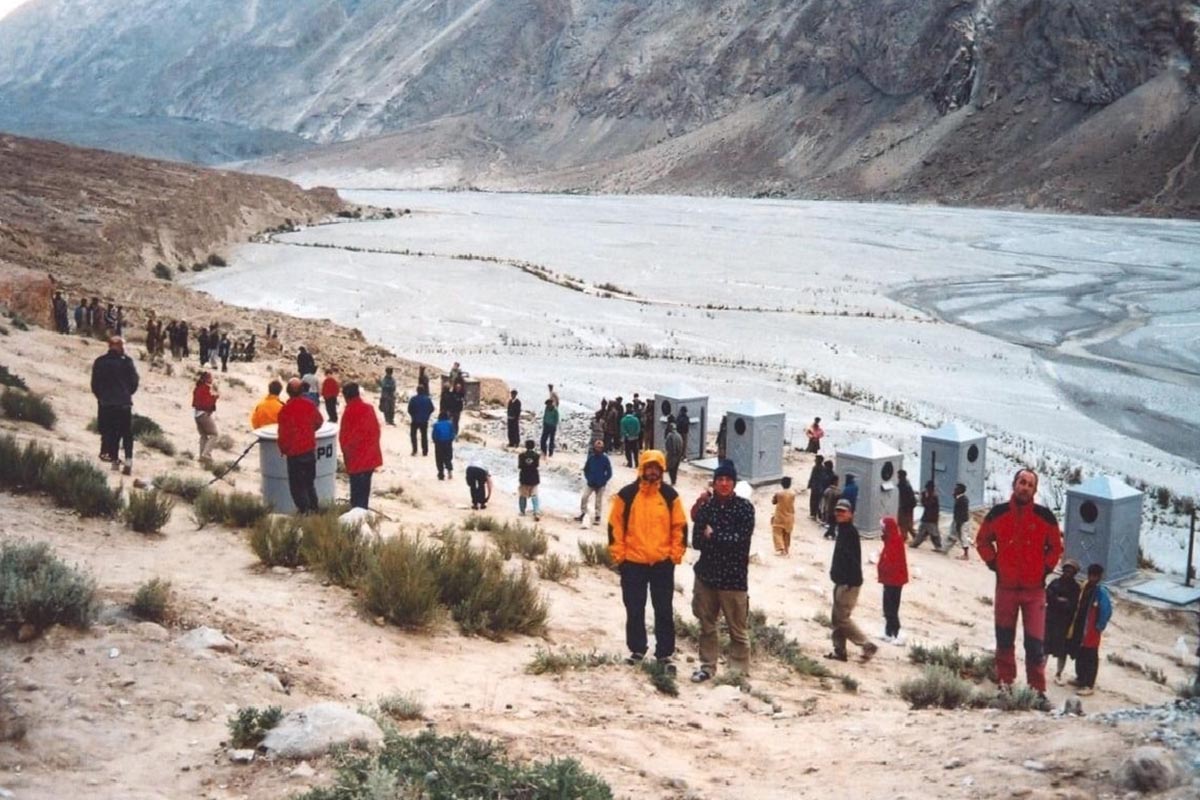
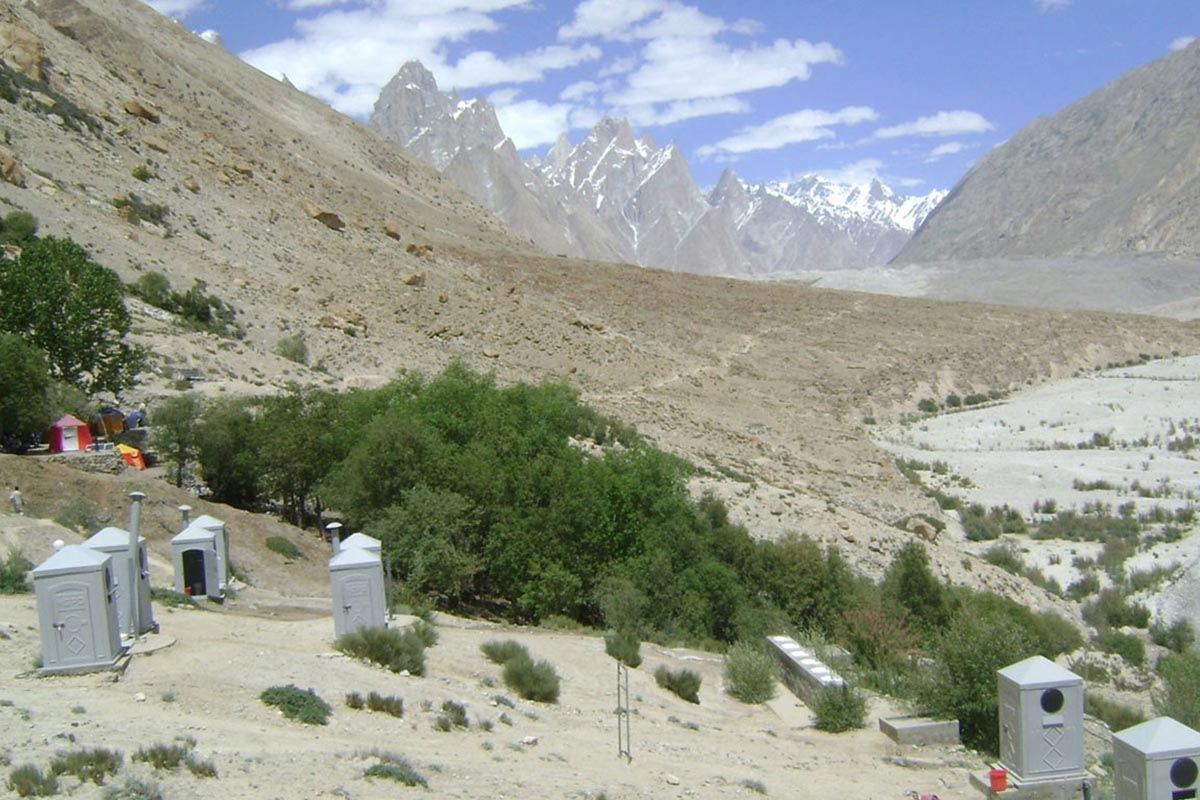
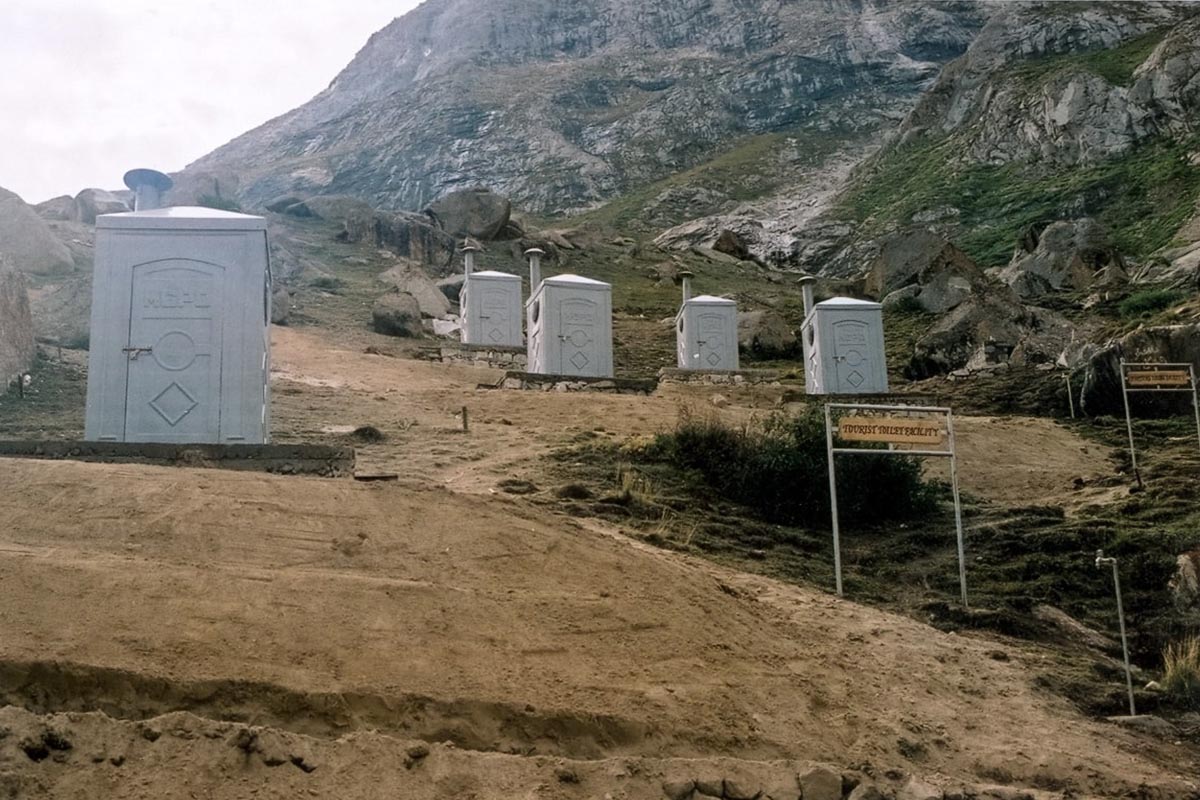
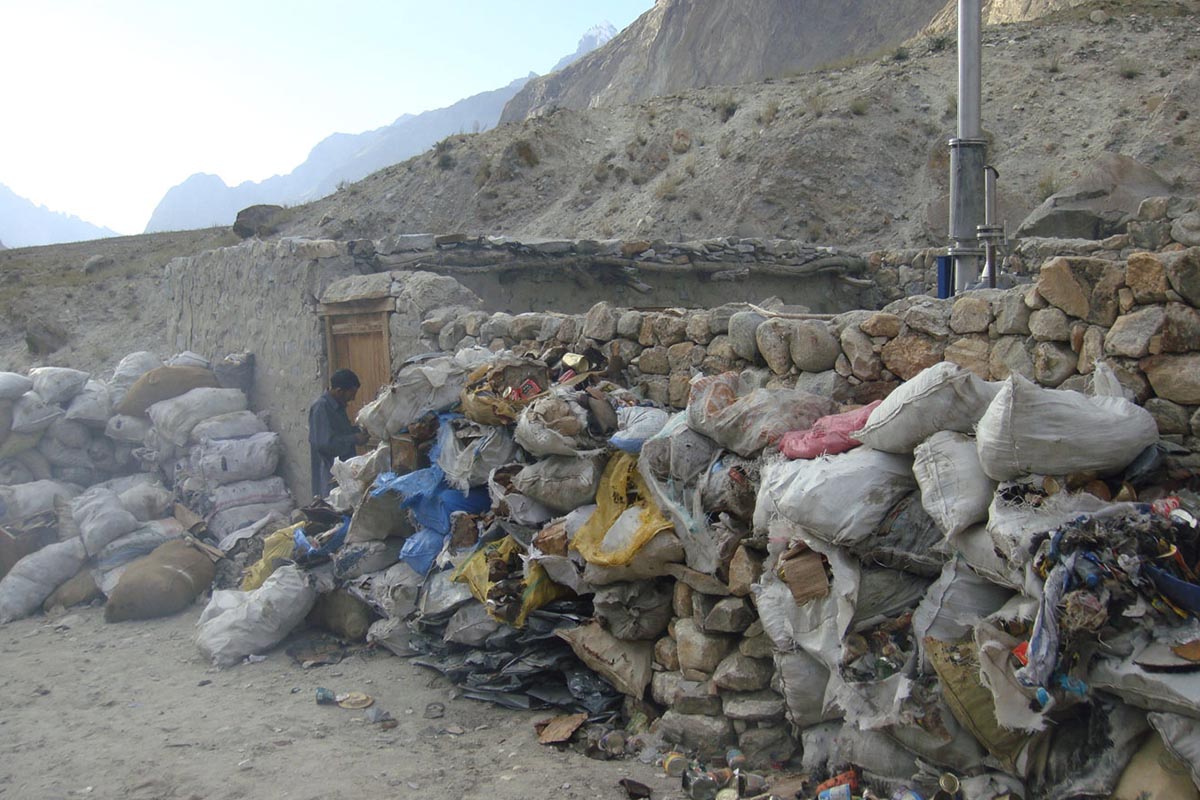
ACHIEVEMENTS
MGPO’s initiative in 2003 and preliminary work to build strategic alliances for a wide range of support activities to protect mountain environment has resulted in transforming an innovative idea tested through a pilot project into a large conservation program which was made part of the waste management strategy for The Central Karakoram National Park Management Plan.
Today as the result of MGPO’s pioneering effort, mountain communities are custodians of their own land and resources and the government is playing an active role in using its regulatory authority to monitor and enforce rules and regulations that safeguard the social, economic and environmental interest of mountain lands and people.
CONTACT
Aisha Khan
aisha@mgpo.org
mgpo.org

